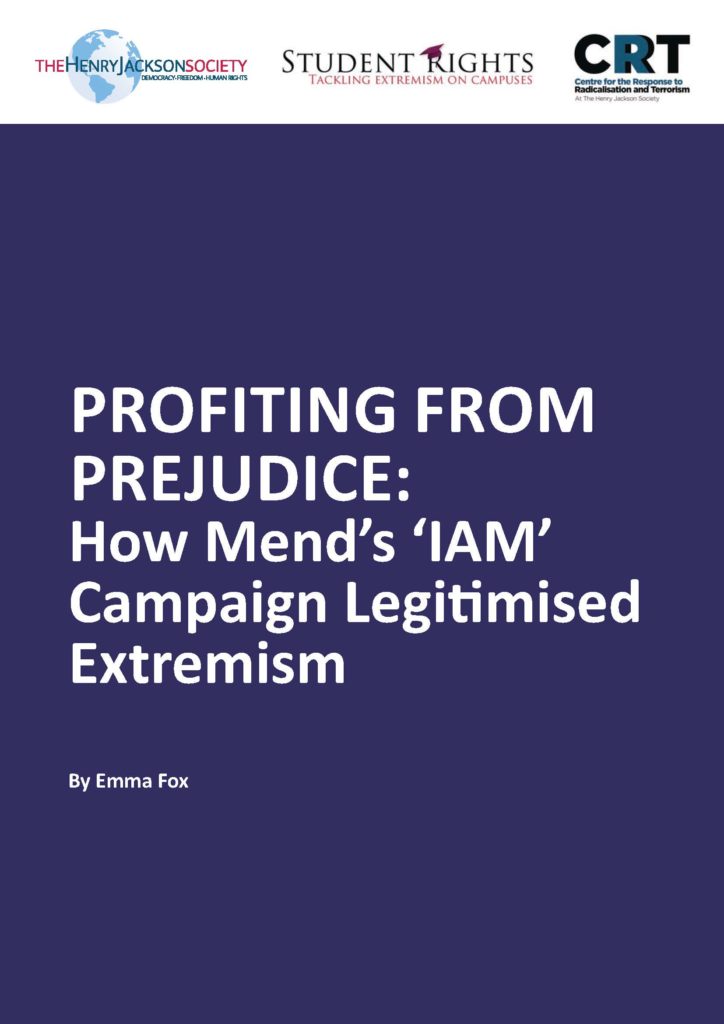SHOP
Profiting from Prejudice: How MEND’s IAM Campaign Legitimised Extremism

Mend’s aesthetic objective of tackling Islamophobia has succeeded in exploiting genuine concerns of anti-Muslim hate, while providing a platform for extremism on the mainstream stage. The messages promulgated and speakers advertised during its six-week campaign are alarming, yet indicative of how Mend operates
An initiative branded as a campaign to fight Islamophobia in fact provided a platform for extremism across the public and charity sectors, according to a new report from the Henry Jackson Society.
The report says that Muslim Engagement and Development (MEND) exploited the legitimate concerns of people who want to fight hatred and discrimination against Muslims to push an alarmist and divisive ‘us vs. them’ narrative – including literature which warned that the UK was heading towards the ethnic genocide of Muslims. MEND also offered ‘training’ for students and encouraged them to raise money for the organisation.
Profiting from Prejudice: How MEND’s ‘IAM’ Campaign Legitimised Extremism catalogues the events which took place in November 2017 under the banner of Islamophobia Awareness Month (IAM), run by MEND. It finds that the campaign gave a platform to extremism-linked individuals, with some events hosting people with a high-profile extremist history – including incitement to violence, sympathy with convicted terrorists and support for corporal punishment against Jews, homosexuals, minority Muslim sects and ‘disbelievers’.
Despite the fact that the UK’s national Counter-Extremism Strategy requires local authorities to ensure that “publicly-owned venues and resources do not provide a platform for extremists and are not used to disseminate extremist views”, the report finds that the majority of IAM events took place on public property – from schools to university campuses – without challenge. Some of the schools involved, including two in Waltham Forest, have a history of hosting high-profile extremist speakers.
IAM events also played host to various parliamentarians, academics and activists, lending the initiative – and MEND – added legitimacy. A report from the Henry Jackson Society published in 2017 found that MEND were “Islamists masquerading as civil libertarians” – but engagement with the organisation by figures such as Labour Leader Jeremy Corbyn continues to enable MEND’s prominence on mainstream platforms.
The report contains several recommendations to reduce the impact of non-violent extremist groups in the public and civil society sectors, including:
- Events hosted at public institutions featuring a speaker linked to extremism should be recorded – and panels should always be balanced, with extremist-linked views challenged by other speakers.
- Universities’ risk mitigation procedures, required under Prevent, should be more transparent in order to highlight why extremist groups continue to appear unchallenged on campus.
- A guidance framework should be drawn up for politicians, the police and civil society to raise awareness of how extremist groups operate – and ensure a unified stance against those who threaten social cohesion.
English
67
Price:
£7.95
(Inc. UK P&P)


